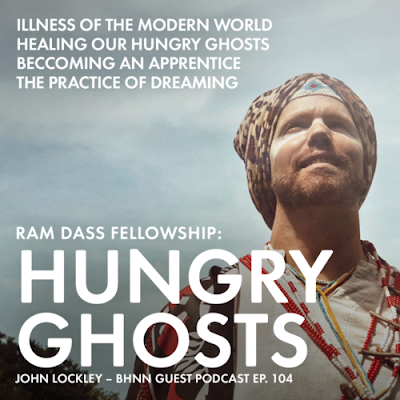A personal blog by a graying (mostly Anglo with light African-American roots) gay left leaning liberal progressive married college-educated Buddhist Baha'i BBC/NPR-listening Professor Emeritus now following the Dharma in Minas Gerais, Brasil.
Tuesday, May 31, 2022
June LGBTQ+ Satsang PRIDE: A SPIRITUAL CELEBRATION
June LGBTQ+ Satsang
PRIDE: A SPIRITUA L CELEBRATION
L CELEBRATION
June 12 @ 5 pm PDT | 8 pm EDT
REGISTER HERE
"Whatever I am, I just am, and from inside that allows me to be at home in the universe." ~ Ram Dass
Join us for a spirited gathering to honor our queer fellowship community. This event will include meditation, social discussion time, and kirtan. We welcome you to decorate yourself and/or your Zoom background to reflect your own personal Pride style. Please feel free to bring a story, excerpt, or teaching to share with the satsang, that connects you to or reflects your queer spiritual experience.
terça-feira, 31 de maio de 2022
Today´s practice, involved a bit of metta-ing about as it were. And just letting the mind go for a bit… nonjudgment, enjoying the path we went down… I accessed my InsightTimer app, and it sounded the bell, and I was off to what I call the races… mind races… that is.
Breathe in, breathe out…
I began, during my sit, by counting breaths, 1-10, start over... and then for some reason wandered to the Bahá’í Prayer: The Remover of Difficulties. Which I hadn’t thought of for years…
Hey old friend, long time no see...
Breathe in, breathe out…
The Remover of Difficulties sustained me during what I call the “the troubles”… coming out, divorce, a baby son, grad school, Ph.D. research and defense… I used to just walk about, repeating it over and over… vacillating from crazy to OK to survival. I couldn’t deal with much, it felt like I was just hanging on by my fingernails, until I found a good bunch of Gay Zen Buddhists and a professor who mentored me through the bottoming out (pardon the metaphor). Zen guys became mentors, not unlike uncles, and really helped me steer out of the darkness and confusion I felt myself in.
Many Bahá’ís might use it as a sort of mantra… sometimes repeating it hundreds of times… Helen Bishop taught me to mantra it, using my knuckles… 45 times up, 45 times back. She knew she was dealing with a young man with a touch of ADD.
Breathe in, breathe out…
And then I said to myself "Self, how about, one more Remover of Difficulties just for old times sake?" And suddenly I was reminded of Melvin´s practice, that I archived on my virtual altar site:
Melvin takes his version of metta and moves through the pronouns… I have adapted to do a “I, you, “that person”, “them” all beings… sort of wheel of concentration.
Breathe in, breathe out…
So I said to myself, “Self, try it with our old friend, the Remover of Difficulties…" I mean what could happen, no one is watching...
So, I began...
Is there any remover of difficulties save God? Say praised be God! He is God! All are his servants, and all abide by His bidding.
I did a second pass, this time:
Is there any remover of difficulties save God? Say praised be God! SHE is God! All are HER servants, and all abide by HER bidding.
Hmmm… that was fun… the gender thing about English and monotheism has bothered me for a while. So, I wondered, h’bout this, and I tried:
Is there any remover of difficulties save God? Say praised be God! YOU are God! All are YOUR servants, and all abide by Your bidding.
Then…
Is there any remover of difficulties save God? Say praised be God! All Beings are God! All are THEIR servants, and all abide by THEIR bidding.
Breathe in, breathe out…
Then the bell rang, and I dropped back to chair. And it was over.
As I write the music I am playing here, talked about a Franciscan prayer, I believe it goes something like this:
Oh my god
You are here
Oh my god
I am here
Oh my god
we are here
And always, always, always, you love us!
Be well, be safe…now, here.
Via Daily Dharma: Learning Balance Prevents Burnout
Knowing
and feeling the suffering of others requires balance lest suffering
overwhelm the sharer. Grief the same. It cannot be avoided. The trick is
to navigate the bivalent nature of each of these states, building good
from bad.
William deBuys, “Good Grief”
CLICK HERE TO READ THE FULL ARTICLE
Via Dhamma Wheel | Right Intention: Cultivating Appreciative Joy
Cultivating Appreciative Joy
|
|
|
|
|
|
|
One week from today: Cultivating Equanimity
Share your thoughts and join the conversation on social media
#DhammaWheel
Questions? Visit the Dhamma Wheel orientation page.
Monday, May 30, 2022
Via Dhamma Wheel | Right View: Understanding the Noble Truth of the Cessation of Suffering
Understanding the Noble Truth of the Cessation of Suffering
|
|
|
|
|
|
|
One week from today: Understanding the Noble Truth of the Way to the Cessation of Suffering
Share your thoughts and join the conversation on social media
#DhammaWheel
Questions? Visit the Dhamma Wheel orientation page.
Via Daily Dharma: Considering the Suffering of Others
Buddhism teaches us that everyone suffers, though we would do well to remember that we all suffer differently.
Olivia Q. Pintair, “A Raft Amid Rising Waters”
CLICK HERE TO READ THE FULL ARTICLE
Sunday, May 29, 2022
Via Ram Dass - Love Serve Remember Foundation // Words of Wisdom - May 29, 2022 💌
If I can’t stop thinking, maybe I can just let my thoughts go by without getting all caught up in them. Feel the breeze on your face or your neck? See how it’s going by? You’re not all hung up with it. You don’t have to see where each breeze goes. You don’t have to look quickly to see if it hit those trees over there. It’s breezes, and they’re just going by. Make your thoughts like those breezes, those little breezes...just going by.
- Ram Dass -
Via Dhamma Wheel | Right Mindfulness and Concentration: Establishing Mindfulness of Feeling and the Second Jhāna
Establishing Mindfulness of Feeling
|
|
|
|
|
|
|
|
|
|
|
One week from today: Establishing Mindfulness of Mind and Abiding in the Third Jhāna
Share your thoughts and join the conversation on social media
#DhammaWheel
Questions? Visit the Dhamma Wheel orientation page.
Via Daily Dharma: Coming and Going
When
we really get a feeling for the coming and going of moments, it helps
us break the illusion of a solid, separate self, which gives us relief
from suffering.
Loch Kelly, “When Am I?”
CLICK HERE TO READ THE FULL ARTICLE
Saturday, May 28, 2022
BHNN Guest Podcast – Ep. 104 – Ram Dass Fellowship: Hungry Ghosts w/ John Lockley
Via L.A. Times
|
Read more
The Lion’s Roar Podcast: Anxiety and What to Do About It with Bruce Tift
The Lion’s Roar Podcast: Anxiety and What to Do About It with Bruce Tift | ||
| This episode of The Lion’s Roar Podcast features psychotherapist and author Bruce Tift. | ||
| Anxiety
can be a pretty reasonable response to times of wide spread disease,
environmental disaster, social unrest and polarization. Associate editor
Chris Pacheco talks to Bruce Tift, psychotherapist and author of Already Free: Buddhism Meets Psychotherapy on the Path of Liberation, about attempting to control feelings of anxiety, why that only makes it worse, and what to do instead. |
||
|
Via Lion´s Roar
|
|

|
||
Smile at Fear: Pema Chodron on Bravery, Open Heart & Basic Goodness |
||
| If you want to pitch in and help solve the world’s problems, says Pema Chödrön, you’ve got to start with yourself. Here’s her advice for making friends with the fear that can hold us back. | ||
| If
we come to the understanding that we are needed and commit ourselves to
doing something about our own pain and the pain around us, we will find
that we are on a journey. A warrior is always on a journey, and a main
feature of that journey is fear. This fear is not simply something to be
lamented, avoided, or vanquished. It is something to be examined,
something to make a relationship with. |
||
|
Via Daily Dharma: Practice Without Goal
A
goalless practice is about being right here in each moment without any
conceptual objective in mind. It means putting the brakes on constantly
doing, and starting to just be in the world as you are.
Anthony Tshering, “How the Concept of Impermanence Can Help Anxiety-Ridden Millennials”
CLICK HERE TO READ THE FULL ARTICLE








